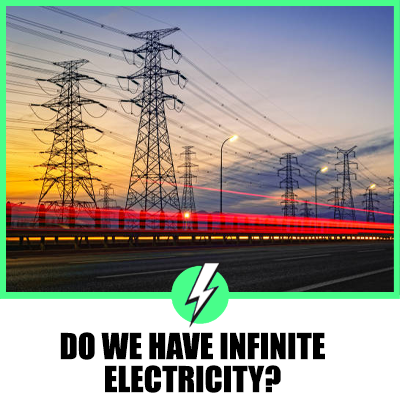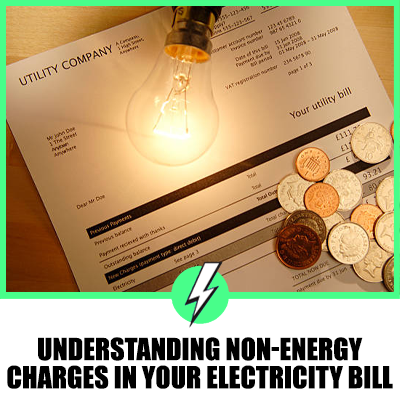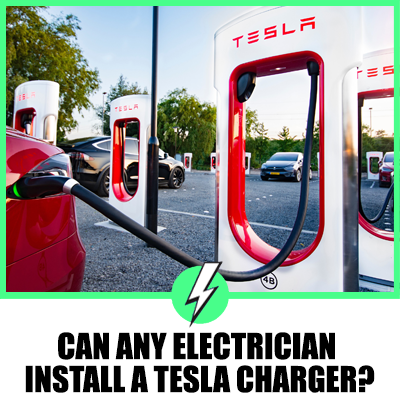Do We Have Infinite Electricity?
Contents
Do We Have an Infinite Supply of Electricity?
The concept of infinite electricity is a fascinating one.
It’s a question that has been asked by many, from scientists to laymen, and the answer is not as straightforward as one might think.
Electricity is a form of energy, and energy cannot be created or destroyed, only converted from one form to another. This is a fundamental principle known as the law of conservation of energy.
Therefore, in a sense, the total amount of energy in the universe is constant, or ‘infinite’. However, the form that this energy takes, and our ability to harness it for use as electricity, is not infinite.

Can Electricity Ever Run Out?
Electricity itself cannot run out because it is a form of energy, and energy is conserved.
However, the resources we use to generate electricity can and do run out. Fossil fuels, such as coal, oil, and natural gas, are finite resources that are being depleted at a rapid rate. Once these resources are exhausted, we will no longer be able to use them to generate electricity.
Renewable energy sources, such as solar and wind, are not finite in the same way as fossil fuels. The sun will continue to shine, and the wind will continue to blow, for billions of years. However, our ability to harness these sources of energy to generate electricity is limited by technology and geography.
Can We Make Infinite Energy?
The short answer is no, we cannot make infinite energy.
The law of conservation of energy states that energy cannot be created or destroyed, only converted from one form to another. This means that we cannot create energy out of nothing.
However, we can continually convert one form of energy into another. For example, we can convert the kinetic energy of wind into electrical energy using wind turbines. Similarly, we can convert the thermal energy of the sun into electrical energy using solar panels. But the total amount of energy in the universe remains constant.
Why Unlimited Energy is Not Possible?
The idea of unlimited energy is a tantalizing one, but it is not currently possible due to the laws of physics.
The first and second laws of thermodynamics, which govern the behavior of energy, place limits on what we can do.
The first law, also known as the law of conservation of energy, states that energy cannot be created or destroyed, only converted from one form to another. This means that we cannot create energy out of nothing.
The second law, also known as the law of entropy, states that energy always flows from areas of high energy to areas of low energy until equilibrium is reached. This means that we cannot get more energy out of a system than we put into it.
In other words, there is no such thing as a free lunch when it comes to energy. We always have to put energy in to get energy out, and due to inefficiencies in the conversion process, we always get less energy out than we put in.
Insights from Online Discussions
Online discussions on platforms like Quora, Reddit, and Stack Exchange reveal a wide range of opinions and insights on the topic of infinite electricity.
Some users argue that while the total amount of energy in the universe is constant, our ability to harness it for use as electricity is not infinite.
Others point out that while renewable energy sources like solar and wind are not finite in the same way as fossil fuels, our ability to harness these sources of energy to generate electricity is limited by technology and geography.
One interesting perspective comes from the website Infinite Power, which discusses a technology called Infinite Power Cells.
These cells function similarly to solar cells, but instead of converting sunlight into electricity, they harness the energy of radioisotopes to produce an electrical current. This technology is touted as a low-cost, zero-carbon, zero-waste baseload power source that can generate continuous power for decades.
Another insightful article from Future Business Tech explores the potential impact of fusion power, a form of energy generation that could provide nearly unlimited electricity.
The article discusses how fusion power could dramatically lower energy costs, increase access to electricity, and even reverse climate change.
Conclusion
The concept of infinite electricity is a complex one that touches on the fundamentals of physics, the limitations of our technology, and the finite nature of our resources.
While we cannot create infinite energy or achieve unlimited energy generation, advancements in technology and a shift towards renewable energy sources offer promising pathways towards a more sustainable and abundant energy future.





